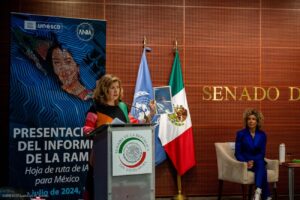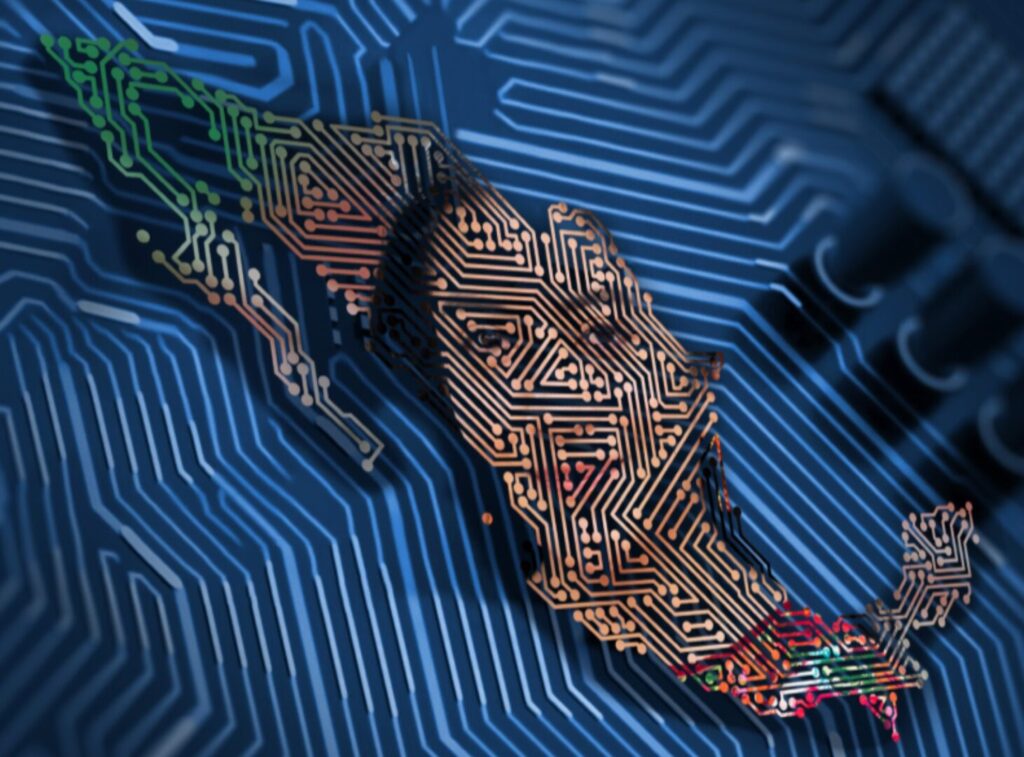The UNESCO presented the report Mexico Artificial Intelligence Readiness Assessmentin which he highlights the challenges facing our country in this digital era.
The document prepared in collaboration with the National Alliance for Artificial Intelligence (ANIA), and with the support of the i-Center for the Society of the Future was filed with the Senate of the Republic.
The report indicates that in 2018, the government of. Mexico launched an ambitious initiative to develop a national digital strategy to include the Artificial Intelligence (IA), which placed the country in a prominent role on the international scene, participating in the working groups of the UN and leading initiatives in the Latin American and Caribbean Network for the Development of Digital Governments. However, the initial momentum has not translated into the consolidation of a national AI strategy.
According to the Latin American AI Index2 2023, Mexico has a "very low" performance in vision and institutionalism, with a score of 2.78 compared to the regional average of 33.68; and in strategy, with 8.33 compared to the regional average of 35.41. This reflects the absence of a national strategy in place and the lack of mechanisms for social participation in the development of IA.
"It is important to recognize that the challenge facing the country is great, especially in light of the speed with which the digital ecosystem is evolving," the report states.
The report of the UNESCO states that one of Mexico's immediate challenges is to build a governance environment conducive to the development and uses of AI.
There, he emphasizes, the country can rely on different institutions, such as the Federal Telecommunications Institutes (IFT) and the National Institute for Transparency, Access to Information and Protection of Personal Data (Instituto Nacional de Transparencia, Acceso a la Información y Protección de Datos Personale).s (INAI) that have powers that can be used for this purpose.
The UNESCO stresses that multiple studies estimate that AI developments could increase global GDP by between 1.5% and 2% in 10 years and could impact the transformation from 40% to 60% of jobs worldwide.
For this reason, he says, he has led initiatives to prepare countries not only with data and knowledge generation, but also in its application to guide public policies and governance mechanisms.
"Mexico could consolidate its position as a reference in governance for the ethical and effective development of artificial intelligence if it were to embark on an institutional design, including a mapping of its ecosystem and a specific legal framework, and succeed in issuing a National Strategy integrated into its Development Plan, a challenge in which UNESCO can cooperate," said Gabriela Ramos, UNESCO's Deputy Director General for Social and Human Sciences, during the presentation of the report to the Senate.

The report concludes with a series of policy recommendations to strengthen the AI ecosystem in Mexico:
- Elaboration of a functional map of the AI ecosystem.
- Integration of an adequate legal framework.
- Creation of an inclusive institutional and governance design.
- Development of a National AI Strategy that considers cybersecurity, an ethical approach, and environmental sustainability.
In spite of the challenges, the report highlights that Mexico has a solid legal framework and actors willing to contribute to building a governance environment to ensure the ethical development of AI, but the key is to take advantage of these strengths and move towards a national strategy that places the country at the forefront of the digital revolution.
Source: UN


